I thought before too much time passes, I should collect my tweets and comments about The 2013 Future of Music Coalition Policy Summit held in Washington DC October 28-29, 2013. The 2013 World Series was happening at the same time, so FMC was not my top priority. Taking notes and tweeting about an event is also not my favorite activity but one that I occasionally delve into. (Grammar Girl believes we should be able to end sentences with prepositions, in case you were wondering abut that last sentence.)
This will be fun to collect and NUMBER tweets. I had no idea that I wrote 75 tweets (shown below) and more in the next posts. I wrote more at one part of the program but will not include these as I was writing about the worst presentation I had ever seen at an FMC event. (If you are curious about it, you could go search my tweets from October 28-29, 2013. I won’t and I don’t think you should either.)
It is important to note when reading tweets below that Peter Jenner has a great British accent and would usually be the smartest guy in the room.
1. Peter Jenner is dead on. It has to be made easier to access music. The scandal is that Spotify is the only best access to music #fmc132. Peter Jenner: “Anyone who thinks that we can control the Internet is up their ass.” #FMC13
3. Peter Jenner – we have to think “collective” in order to create a means by which more are paid. (Socialism! Hah hah!) #fmc13
Like I said. The man’s lovable RT @emh2625: Peter Jenner: “Anyone who thinks that we can control the Internet is up their ass.” #FMC13
4. Peter Jenner: “Anyone who thinks that we can control the Internet is up their ass.” #FMC13
5. Peter Jenner – we have to think “collective” in order to create a means by which more are paid. (Socialism! Hah hah!) #fmc13
6. Are you sure you want to be in the music biz? Be extraordinary. Do not sharecrop. Don’t sell copyright unless price is high. #fmc13
7. Make community, support & be supported. Learn to pay fair wage & get fair wage. If you don’t like status quo, change it. #fmc13
8. Learn you’ll be popular & not know why. Learn you’ll be UN-popular & not know why. Love music. (Erin McKeown) #fmc13
9. Music business should be a part of music instruction. (EMH – do 4 hrs, not 8, 2 not 4 in a practice room-Learn Business & more) #fmc13
I had to add that ditty to my tweet as I think time has long passed when musicians, songwriters, and music students in music colleges and conservatories can expect to work 100% on their craft and the gorgeous invisible substance of sound and music. Musicians, whether they want to acknowledge it or not, are involved in the world of business (who pays for these habits of theirs?) and technology (the body is tech, instruments are tech, electronics are tech, computers are tech, etc.). Musicians need to develop their skills of conning people into thinking they (the musicians) are needed and should receive money for playing and/or writing music. These skills have to be developed with an eye and ear for social media, business, technology, government and new means of touching the world. I added “government” in that sentence because if it wasn’t for a very large and powerful central federal government and its blueprint plans, i.e., the Constitution, there would be no copyright law and no basis for federal support for authors and inventors. And with the status of laws and litigation always in flux, interested parties need to continue to lobby their government to keep acting on their behalf.
10. Jeremy Peters: Copyright is broken but other than Creative Commons, what is being done to fix it? #fmc13
11. We’re moving from culture of owners to that of renters (of intellectual property – IP) #FMC13
12. The conversation of “you are all thieves” to those not paying for IP is useless. Reminsicent of Federal government shutdown. #fmc13
13. Artists who have been burned so badly by the miscreants in the music business – go out on their own is an option #fmc13
14. Stream of income helps buy new gear, but this is not a solution, just an income stream #fmc13
15. Get rid of minimal fee (for mechanical royalty) & concentrate on the amount of time is used in a composition or film #fmc13
16. Methodology that can fairly compensate artists, writers. Amount of time is more realistic and fairer. #fmc13
17. A new mechanical license proposal that is clear to artists, publishers, lawyers & the courts is needed. Modernization. #fmc13
18. Songwriters Assn of Canada Prez has introduced himself as “sad Eddie.” Because of the Cardinals WS loss? Songwriters’ prospects? #fmc13
19. New models gaining traction (Spotify). Legit, paid. Pandora too. Music creators embrace these models (EMH: not the RIAA) #fmc13
I think it is very bad to always ignore, then underestimate, misunderstand, litigate and then try to legislate against new technologies (a la RIAA & MPAA versus every new tech toy). The technologies always win.
20. Uh-oh. We’re hearing “I love the Internet” (“some of my best friends are black” comes to mind…) Then comes the HOWEVER. #fmc13
21. “However” is Canadian for “but.” Some arithmetic is coming “the nitty gritty.” What’ll follow is lots of Internet plays & tiny money #fmc13
22. For the umpteenth time & to paraphrase Carl Sagan “billions & billions of” music spins & zero money. #fmc13
23. To legitimate creators there is no difference between piracy & the legitimate new services. (Oh God) That attitude will help. #fmc13
24. Rich people get richer by these new legit services while musicians stay poor. Music creators need a new narrative & new initiative #fmc13
25. “Adopt fair trade” principles for musicians. (Good!) Next he describes the new categories. Now he’s bemoaning SOPA. (Glad it lost!) #fmc13
26. To put all our eggs into the US Congress basket is a bad idea. They were crushed by the crushing of SOPA. #fmc13
27. Fair trade criteria that is fair to consumers & businesses. Certify biz as fair trade coffee is done. Fair principles for creators #fmc13
28. What is fair compensation for creators? “fair & sustainable” Need for transparency in all collective societies, pubs, labels. #fmc13
29. Shouldn’t everyone be transparent in all the facets? (Yes, but keep dreaming, I’m afraid. This is the music industry…) #fmc13
29. Want transparency? Good but when did that ever happen in the past? Too many speak as if the past was great & now is Evil Google #FMC13
30. Canadians are not calling for new legislation or regulation. They are being pro-active. But pro-active in what way? Huh? #fmc13
31. Canadians songwriting group is being pro-active. But pro-active in what way? By applying a “fair trade” sticker? No law, no reg? #fmc13
32. Music Creators Alliance & Songwriters Guild of America are behind these past ideas (from my tweets). #FMC13
@future_of_music Thank you! I hadn’t heard the Happy and Sads from earlier! Being a Bostonian, first I think baseball & Boston & St. Louis!
I appreciated the FMC informing me of the “Happy” and “Sad” humorous labels from earlier. (This was only the second FMC Policy Summit I’ve missed. They are great events – much better in person – and I hope to be at the next one.)
33. Now we are able to hear the audio of FMC stream. Thank you, you tech people who turned it up to 11. #FMC13
34. Small broadcasters have no clout when it comes to licensing. One-stop shopping (licenses) is essential to run music services/streams #FMC13
35. Are exclusive deals (direct licensing) harmful to smaller broadcasters (I think so). Can anti-trust issues get in the way? #FMC13
36. Good news about direct licensing – they can license around the consent decree. #FMC13
37. Direct licenses problem – transparency! Usually there are non-disclosure agreements. Songwriters are kept in the dark. #FMC13
38. Publisher can cut off payments to a songwriter during a dispute.” – Sad Eddie (of Canada) #FMC13
39. Non-disclosure agreements hurt (prevent) transparency. #FMC13
And now, Jim Griffin. When Jim Griffin speaks, I listen. Only fools wouldn’t.
40. What would direct licensing be on the entire music atmosphere? “Fragmentation is cancer.” – Jim Griffin #FMC13
41. There needs to be a draft-draft musicians into publishing agreements like athletes are drafted by teams! – Jim Griffin #FMC13
42. Jim Griffin is joking (somewhat) but his point is that there is power in unity. (Sounds like pro-union too.) #FMC13
43. When athletes work together to get as much money as they can, musicians should do the same. But there’s antirust to prevent it! #FMC13
44. Why is there only one (1) antitrust department? Excellent funny question relayed by Jim Griffin! (power via unity is the point!) #FMC13
45. Musicians especially those early in career need better legal representation. – Sad Eddie (of Canada) #FMC13
46. Why someone who has significant part of market then pulls out is now exempt from legal restraints? (issue in direct licensing) #FMC13
47. Excellent and educational analogies with sports teams and unions presented. #FMC13 (EMH – We have to think this through and change.)
48. Sound recording (SR) is not an exclusive license It is statutory right. Recordings cannot be withheld. #FMC13
49. Ann Chaitovitz explaining SR & Sound Exchange. Perf right is split 50/50 – 50% musicians, 50% record label/SR owner. Copyright basics #FMC13
50. Direct licensing by a label could (would/will/does?) result in keeping money from the artist/performers. #FMC13
51. Union musicians until digital performance right (DPRSRA) & Sound Exchange were never paid for their contribution to sound recording #FMC13
52. USA still does not have a terrestrial right for musicians (musicians are not paid when music is played on AM/FM) unlike rest of world #FMC13
53. Musicians should be wary of the “workaround” that big broadcasters are doing by direct licensing. Big Radio wants to keep govt out. #FMC13
54. U.S. “Green Paper” recommends a terrestrial right for sound recordings (SR). Terrestrial radio has huge advantage over digital radio #FMC13
Do you want to read the aforementioned “Green Paper?” It is called, “Copyright Policy, Creativity, And Innovation In The Digital Economy” and was authored by the Department of Commerce Internet Policy Task Force in July 2013. (If you are still reading and still interested, click on the following link and the 112-page “Copyright Policy, Creativity, And Innovation In The Digital Economy” will open. This enormous work is several other subjects for several other times.
55. Is Pandora in favor of wanting a performance royalty for terrestrial radio? (Surely as it somewhat levels playing field) #FMC13
56. Pandora might be paying over 50% of their revenues as opposed to others that pay much less. What is rationale for rate setting? #FMC13
57. Exact same radio signal but different radio companies pay between 0 and 70% of revenue. Insane! What is the logic/rationale? #FMC13
58. Argument about any study on this subject. Would be good to have written facts in front of the panel & audience. #FMC13
59. For clarification, “Sad Eddie” as he has humorously been calling himself, is President-Songwriters Assn of Canada #FMC13
60. Praise for US Copyright Law for Recapture Rights. YEA! Songwriters & musicians are able to recapture their copyright after 35 yrs #FMC13
61. Recapture is the only country in the world that lets one change a contract after 35 years. #FMC13
62. Better Call Saul! Ann Chaitovitz – 25 yrs after you’ve created something, call a lawyer (and get things fixed!) #FMC13
I use every possible occasion to mention Saul Goodman, an attorney who thinks quicker and acts more decisively than most and always has that 6th & 7th suggestion ready for you if you didn’t love the initial several.
63. Best point yet – we’re in this mess because we deregulated radio in that damn awful Telecom Act of 1995 (bad Pres. Clinton bill) #FMC13
The Let’s Blow Up Clear Channel so that we can Homogenize the United States further and NEUTER Regional Radio and Music Act, i.e. The Telecommunications Act of 1996, did just what I described.
64. “Lifting the lid…”letting in antiseptic sunshine” (TRANSPARENCY) would be most helpful. #FMC13
65. Best way to improve licensing- record & enumerate a globally-unique song identifier (VIN Vehicle Iden #) – Jim Griffin #FMC13
66. If this (music) is property, why isn’t there a VIN or globally-unqiue identifier? Excellent idea by Jim Griffin (yea metadata!) #FMC13
67. Musicians need level playing field. Can’t compete w/broadcasters. Musicians (serfs) must bow to broadcasters. #FMC13
68. Both are true – musicians are not being paid via AM/FM radio and need the right, and some musicians fear testifying before Congress #FMC13
69. It’s understandable that lowly musicians would fear speaking out against radio as radio can stop playing them. True? #FMC13
70. Why is an audience member afraid to mention the huge radio station (for being against AM/FM performance license)? #FMC13
71. Aud member: Many small club owners have stopped having live music b/c of high royalty rates via ASCAP, BMI, SESAC high rates. #FMC13
72. You have to pay for the music or you won’t get much more of it. – Jim Griffin (last & great comments of panel) #FMC13
73. The first Future of Music Honors dinner will be tonight. Sadly, I’ll be here in Nashville instead of Washington DC #FMC13
74. 4 bipartisan politicians have reauthorized FCC to create a new class of low power radio stations. Will be honored tonight at FMC #FMC13
75. Congratulations to my friends Ann Chaitovitz & John Simson who will be honored tonight by Future of Music Coalition at Honors awards #FMC13
Soon I will publish
FMC – My Tweets, Rants & Reactions, Part 2




